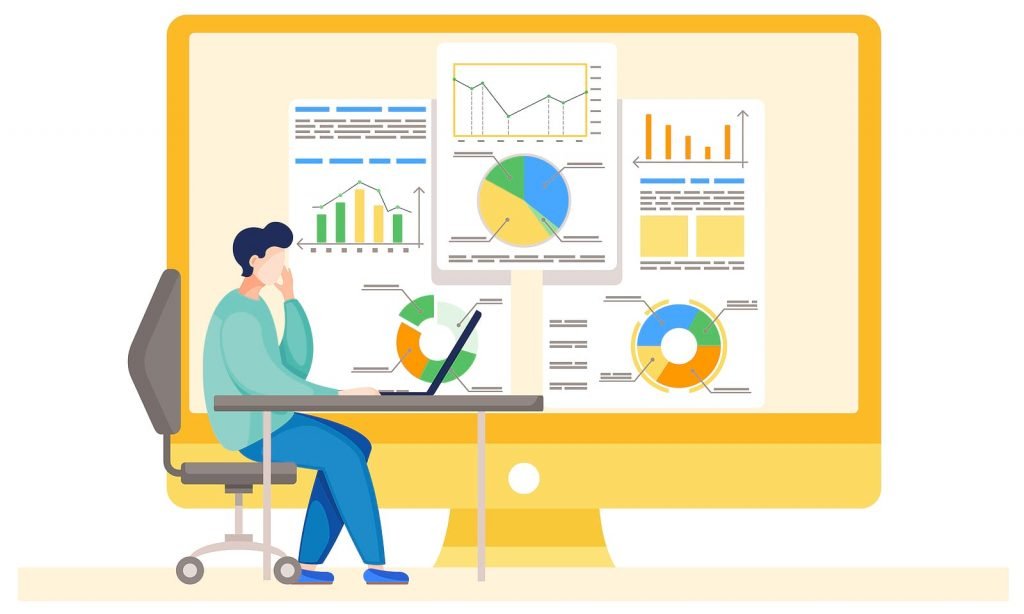In this post, we are going to discuss Metrics vs KPI.
There is a lot of talk these days about Metrics vs KPI (key performance indicators). What’s the difference, and which should you be using?
Metrics are quantitative measurements of progress or activity.
They can be used to track things like sales, website visits, or social media engagement.
KPI, on the other hand, is specific metrics that are used to track the performance of a particular goal or objective.
Which should you use? It depends on what you’re trying to achieve.
Metrics are broader in scope and can be used to track overall progress. KPI, on the other hand, is more targeted and can be used to measure the success of specific goals.
If you’re not sure which to use, start by identifying your business objectives and then selecting the KPI that will help you track progress towards those objectives.
Remember, it’s important to track both metrics and KPI regularly so that you can identify any areas of improvement and make necessary adjustments.
So, what’s the difference between metrics and KPI? Metrics are quantitative measurements of progress or activity.
KPI, on the other hand, is specific metrics that are used to track the performance of a particular goal or objective.
Which should you use? It depends on what you’re trying to achieve.
Metrics are broader in scope and can be used to track overall progress.
KPI, on the other hand, is more targeted and can be used to measure the success of specific goals.
If you’re not sure which to use, start by identifying your business objectives and then selecting the KPI that will help you track progress towards those objectives.
Remember, it’s important to track both metrics and KPI regularly so that you can identify any areas of improvement and make necessary adjustments.
Content Outline
Metrics vs KPI: Brief The Topic
When it comes to business, there are certain key performance indicators (KPIs) that you need to track to measure success.
However, you may also want to track other metrics to get a more complete picture of how your company is performing.
What’s the difference between these two types of measurements?
A key performance indicator (KPI) is a metric that reflects the success or failure of your business’s objectives, while other metrics simply provide additional information.
For example, it’s important to know how many customers you have, but it can be even more helpful to track their satisfaction levels and what they are buying.
As another example, you may track how much money you’re making, but it can be helpful to look at your profit margins as well.
In general, KPIs are focused on financial measures, while other metrics can include customer satisfaction, website visits, or even social media engagement.
It’s important to track both types of data to have a well-rounded view of your company’s performance.
However, you don’t necessarily need to track every possible metric – you should focus on the ones that are most relevant to your business.
So which metrics should you track? That depends on your business and its goals.
However, some of the most common examples of key performance indicators include:
- Revenue growth
- Profit margins
- Customer acquisition rates
- Customer satisfaction
- Number of new customers
- New product releases or improvements
- Website traffic
The bottom line is that KPIs are a great way to measure success in your business, while other metrics can provide additional information that can help make decisions.
should track both types of data to have a well-rounded view of your company’s performance.
However, you don’t necessarily need to track every possible metric – focus on the ones that are most relevant to your business.
Difference Between Metrics vs KPI
Introduction: Digital data metrics have become a topic of discussion for marketers.
There are many types of data, but the most common ones are website analytics, social media marketing metrics, and mobile marketing metrics.
Other common types are email marketing metrics, SEO marketing metrics, and lead generation metrics.
Although all these different measurements are important, they are not all created equal.
There are many different types of digital marketing measurements, but which ones are the most important? Metrics and KPIs (key performance indicators) are two of the most commonly used measurements in digital marketing.
Metrics are simply a measure of something, while KPIs are a subset of metrics that are used to track and measure progress towards a specific goal.
Which one is more important? Metrics or KPIs? The answer to this question depends on the specific business and its goals.
However, in most cases, KPIs are more important than metrics.
This is because KPIs are used to track progress towards specific goals, while metrics are just a measurement of something, with no information on how that measure is connected to the overall goal of the business.
When it comes to treating these different measurements correctly, there are three main distinctions between them.
First, when evaluating changes in your metrics or KPIs, it is important to understand what caused the change.
Second, metrics should be used for trend analysis, while KPIs should be used for performance analysis.
Finally, different tools and techniques are needed to measure and track metrics and KPIs.
Conclusion: In most cases, KPIs are more important than metrics when it comes to tracking digital marketing progress.
However, it is important to understand the difference between the two and how to treat them correctly.
Benefits of Metrics:
The University of Colorado-Boulder has found that “tracking productivity metrics can help managers boost worker performance”.
The findings suggest that using metrics to track the work being done by employees helps them become more productive.
For example, if an employee is working on a project where there are specific goals that have to be met, tracking their progress throughout the project can help them stay on track.
In addition, if they know their progress is being tracked, they may be more likely to work harder to meet the goals.
Metrics can also be used to measure employee satisfaction.
For example, if an employee is not happy with their current workload, tracking their metrics may show that they are not meeting their goals.
This could then be used as justification to give that employee a new project or tasks that are more in line with their skills and interests.
Overall, metrics provide a way for managers to see how employees are performing and where they may need help.
Additionally, they can be used to track employee satisfaction, which can help with retaining employees.
Quick Links:
Conclusion: Metrics vs KPI 2024
There is no one-size-fits-all answer when it comes to choosing the right metrics and KPIs.
However, by understanding your business goals and objectives, you can tailor a reporting framework that will help you track progress and improve performance.
Of course, it’s also important to keep in mind that metric and KPI selection should be an ongoing process and that your needs and requirements may change over time.
One size does not fit all when it comes to metrics and KPIs; however, many of the most common business goals and challenges can be solved using one or more techniques from this guide.




